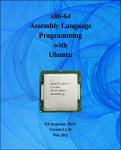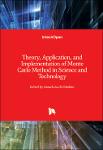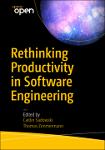Search
Author
- Abramson, David (1)
- Ainley, John (1)
- Caitlin, Sadowski (1)
- Gebhardt, Eveline (1)
- next >
Subject
- Computer science (2)
- Management information... (2)
- access control (1)
- anonymity (1)
- next >
Has File(s)
- true (7)
Search Results
The purpose of this text is to provide a reference for University level assembly language and systems programming courses. Specifically, this text addresses the x86-64 instruction set for the popular x86-64 class of processors using the Ubuntu 64-bit Operating System (OS). While the provided code and various examples should work under any Linux-based 64-bit OS, they have only been tested under Ubuntu 14.04 LTS (64-bit). The x86-64 is a Complex Instruction Set Computing (CISC) CPU design. This refers to the internal processor design philosophy. CISC processors typically include a wide variety of instructions (sometimes overlapping), varying instructions sizes, and a wide range of addressing modes. The term was retroactively coined in contrast to Reduced Instruction Set Computer (RISC... |
This open access book presents a systematic investigation into internationally comparable data gathered in ICILS 2013. It identifies differences in female and male students’ use of, perceptions about, and proficiency in using computer technologies. Teachers’ use of computers, and their perceptions regarding the benefits of computer use in education, are also analyzed by gender.
When computer technology was first introduced in schools, there was a prevailing belief that information and communication technologies were ‘boys’ toys’; boys were assumed to have more positive attitudes toward using computer technologies. As computer technologies have become more established throughout societies, gender gaps in students’ computer and information literacy appear to be closing, although st... |
This open access book presents the outcomes of the “Design for Future – Managed Software Evolution” priority program 1593, which was launched by the German Research Foundation (“Deutsche Forschungsgemeinschaft (DFG)”) to develop new approaches to software engineering with a specific focus on long-lived software systems. The different lifecycles of software and hardware platforms lead to interoperability problems in such systems. Instead of separating the development, adaptation and evolution of software and its platforms, as well as aspects like operation, monitoring and maintenance, they should all be integrated into one overarching process. Accordingly, the book is split into three major parts, the first of which includes an introduction to the nature of software evolution, follow... |
The Monte Carlo method is a numerical technique to model the probability of all possible outcomes in a process that cannot easily be predicted due to the interference of random variables. It is a technique used to understand the impact of uncertainty, ambiguity, and risk in forecasting models. This book is organized into three sections and presents the general principles of the Monte Carlo method with an emphasis on techniques to decrease simulation time and increase accuracy. Section 1 discusses the major fields of application of the Monte Carlo method in medicine. Section 2 introduces the theory and application of the Monte Carlo method in material science. Section 3 provides practical information needed to support simulation and analysis of structures by numerical models and intr... |
Get the most out of this foundational reference and improve the productivity of your software teams. This open access book collects the wisdom of the 2017 "Dagstuhl" seminar on productivity in software engineering, a meeting of community leaders, who came together with the goal of rethinking traditional definitions and measures of productivity. The results of their work, Rethinking Productivity in Software Engineering, includes chapters covering definitions and core concepts related to productivity, guidelines for measuring productivity in specific contexts, best practices and pitfalls, and theories and open questions on productivity. You'll benefit from the many short chapters, each offering a focused discussion on one aspect of productivity in software engineering. Readers in many... |
This open access book constitutes the proceedings of the 8th International Conference on Principles of Security and Trust, POST 2019, which took place in Prague, Czech Republic, in April 2019, held as part of the European Joint Conference on Theory and Practice of Software, ETAPS 2019.
The 10 papers presented in this volume were carefully reviewed and selected from 27 submissions. They deal with theoretical and foundational aspects of security and trust, including on new theoretical results, practical applications of existing foundational ideas, and innovative approaches stimulated by pressing practical problems. |
This open access book constitutes the refereed proceedings of the 5th Asian Supercomputing Conference, SCFA 2019, held in Singapore in March 2019.
The 6 full papers presented in this book were carefully reviewed and selected from 33 submissions. They cover a range of topics including memory fault handling, linear algebra, image processing, heterogeneous computing, resource usage prediction, and data caching. |







